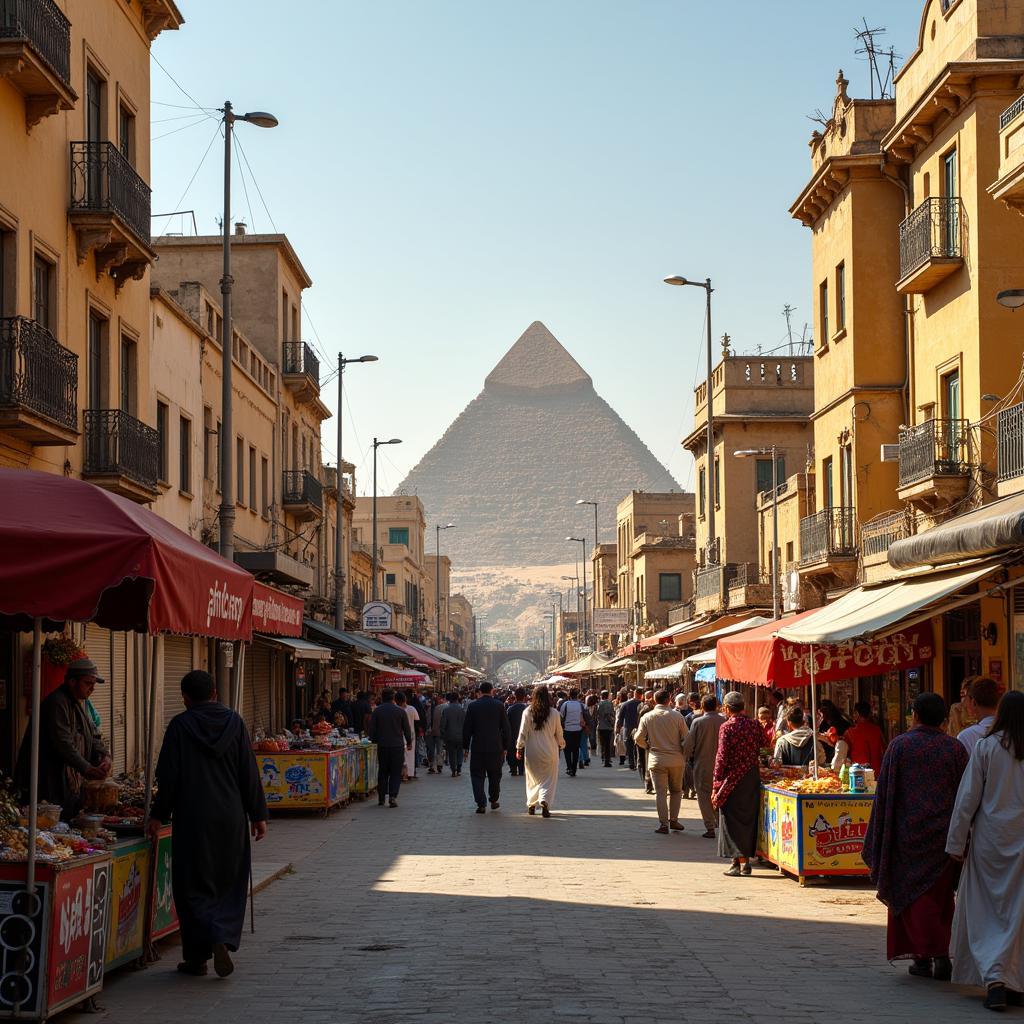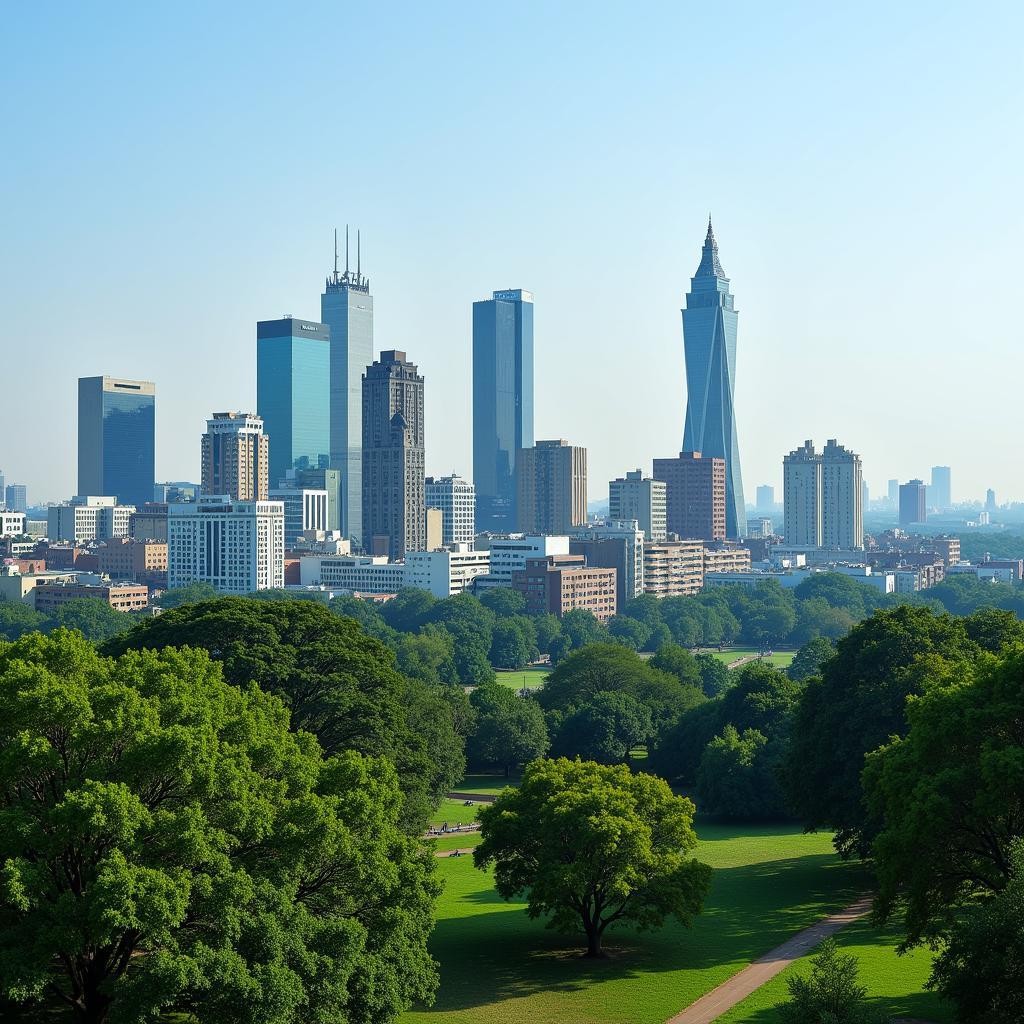African Capitals List: A Journey Through the Heart of Africa
Africa, a continent of vibrant cultures, breathtaking landscapes, and rich history, boasts a diverse array of capital cities. This African Capitals List isn’t just a geographical index; it’s a gateway to understanding the pulse of each nation, from bustling metropolises to serene coastal towns. Each capital tells a story, reflecting the unique heritage, political landscape, and aspirations of its people.
Africa is a continent of contrasts, and its capitals are no exception. Some, like Nairobi, are modern hubs of commerce and innovation, while others, like Addis Ababa, hold deep historical significance as centers of ancient empires. This diversity is what makes exploring the African capitals list so fascinating. Here we delve into not just the locations, but the essence of these important cities. Did you know that several African capitals have changed locations over time due to various factors, such as colonial influence or the need for better resources? For example, Lagos was once the capital of Nigeria but was later replaced by Abuja.
Exploring Key African Capitals
Let’s embark on a virtual tour of some prominent capitals on the African capitals list, highlighting their unique features and historical significance. Understanding the context of each city is crucial to appreciating the complexities of African governance and culture.
Cairo: The City of a Thousand Minarets
Cairo, the capital of Egypt, is a sprawling metropolis where ancient wonders meet modern marvels. Its rich history, dating back to the pharaohs, is visible in iconic landmarks like the Pyramids of Giza and the Sphinx. Cairo is a melting pot of cultures, and its bustling markets, vibrant art scene, and delicious cuisine make it a must-visit destination.
Nairobi: The Green City in the Sun
Nairobi, Kenya’s capital, is known as the “Green City in the Sun” thanks to its lush parks and gardens. This bustling city is a major hub for East Africa, boasting a thriving business district, world-class museums, and a vibrant nightlife.
Addis Ababa: The Diplomatic Capital of Africa
Addis Ababa, Ethiopia’s capital, is often referred to as the “Diplomatic Capital of Africa” due to its role as the headquarters of the African Union. The city is a center of culture and history, with numerous museums, historical sites, and traditional markets.
 Cairo, Egypt: A vibrant city with a rich history
Cairo, Egypt: A vibrant city with a rich history
Accra: The Gateway to West Africa
Accra, the capital of Ghana, is a vibrant coastal city known for its beautiful beaches, lively markets, and rich cultural heritage. It’s a center for trade and commerce, attracting visitors from around the globe.
The Role of Capitals in African Development
African capitals play a crucial role in the continent’s development. They are centers of political power, economic activity, and cultural exchange. These cities are often the drivers of innovation and progress, shaping the future of their respective nations.
- Economic Hubs: Most African capitals are the primary economic centers of their countries, attracting investment, fostering entrepreneurship, and creating job opportunities.
- Centers of Education: Many capitals are home to prestigious universities and research institutions, contributing to the development of skilled workforce and advancements in various fields.
- Cultural Melting Pots: African capitals often represent the diverse cultural landscape of their countries, bringing together people from different ethnic groups, languages, and traditions.
 Nairobi, Kenya: A modern metropolis with lush greenery
Nairobi, Kenya: A modern metropolis with lush greenery
A renowned expert on African urban development, Dr. Akinyi Ochieng, states, “African capitals are not just administrative centers; they are the engines of growth and transformation, driving the continent towards a brighter future.”
Navigating the African Capitals List: A Practical Guide
Planning a trip to Africa? Having a comprehensive African capitals list is essential. Here are some tips to make the most of your journey:
- Research: Learn about the specific entry requirements, visa regulations, and local customs of the countries you plan to visit.
- Plan your itinerary: Choose the capitals that align with your interests, whether you’re drawn to historical sites, natural wonders, or cultural experiences.
- Book accommodations and transportation in advance: Especially during peak season, it’s essential to secure your travel arrangements early.
- Pack appropriately: Consider the climate and cultural norms of the destinations you’ll be visiting.
Another expert, Professor Ibrahim Diallo, a historian specializing in African capitals, adds, “Visiting African capitals offers a unique opportunity to witness the dynamic interplay of tradition and modernity, shaping the continent’s identity.”
Conclusion: Beyond the African Capitals List
The African capitals list is more than just a collection of names. It’s an invitation to explore the heart and soul of Africa, to discover the vibrant cultures, rich history, and diverse landscapes that make this continent so unique. By understanding the significance of these capitals, we gain a deeper appreciation for the complexities and potential of Africa. So, start planning your African adventure today and experience the magic of these incredible cities firsthand!
FAQ
- How many countries are in Africa? Africa has 54 recognized countries.
- What is the largest capital city in Africa by population? Cairo, Egypt is the largest capital city by population.
- Which African capital is known as the “Paris of Africa”? Dakar, Senegal is sometimes referred to as the “Paris of Africa”.
- What is the oldest capital city in Africa? Luxor, Egypt is considered one of the oldest continuously inhabited cities in Africa, although it is no longer the capital.
- Which African capital is closest to Europe? Tunis, Tunisia is the African capital closest to Europe.
- Are there any landlocked African capitals? Yes, several African capitals are landlocked, including Addis Ababa, Ethiopia and Kigali, Rwanda.
- Which African capital is known for its vibrant nightlife? Lagos, Nigeria and Nairobi, Kenya are known for their vibrant nightlife.
Related Questions and Articles:
- For information about African American barbers near you, check out african american female barbers near me.
- Interested in the history of African American barber shops? Explore african american barber shop.
Call to Action:
For any assistance, feel free to contact us at: Phone: +255768904061, Email: kaka.mag@gmail.com or visit us at Mbarali DC Mawindi, Kangaga, Tanzania. Our customer service team is available 24/7.


